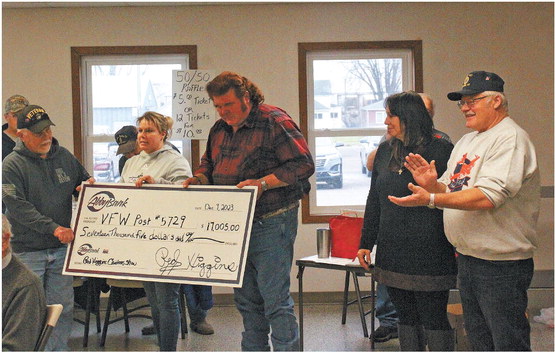County proposes deed restrictions on seized lots
By Kevin O’Brien
A proposal that would require either owner-occupied homes or long-term rentals on tax-foreclosed properties sold by Marathon County took one step closer towards the full county board last week.
Members of the Extension, Education and Economic Development Committee (EEEDC) voted last Thursday to recommend a pair of resolutions that would put deed restrictions on any properties seized by the county due to delinquent taxes.
According to the resolutions, anyone who buys a tax-delinquent property would be barred from using it as a short-term rental for 10 years after it was purchased. For buildable lots with no structures on them, the buyer would have 24 months to build a home on the property and get it occupied.
The goal of the deed restrictions is to create more affordable housing within the county, which county supervisors have made a priority as part of their strategic plan.
The restrictions, also known as covenants, dovetail with the county’s ongoing efforts to clear its backlog of tax-delinquent properties. At the end of last year, the county sold 12 seized parcels on the Wisconsin Surplus online auction site and it’s planning on selling off another batch of properties once they go through the foreclosure process.
The proposed covenants, based on similar ones enacted by Bayfield County in far northern Wisconsin, would be written into Section 3.2 of the county’s ordinances under one of the resolutions drafted by corporation counsel Michael Puerner.
Puerner also suggested other amendments to the ordinance that would align with a new state law that requires the county to “return
See DEED RESTRICTIONS/ page 3 Deed restrictions
Continued from page 1
any excess proceeds received by the county as a result of a sale of tax delinquent property to the former owner.” The “excess proceeds” would include any money beyond what was owed to the county for back taxes, interests and assessments, as well as for the costs incurred by the county for acquiring and selling the property.
The new state law, based on a Supreme Court decision on a case in Minnesota, will also require that all tax-foreclosed properties be sold within 180 days of acquisition starting in 2026, so Puerner also included that in the proposed ordinance update. Questions have been raised about whether or not the proposed deed restrictions would artificially lower the value of seized properties, preventing the former owners from getting the most out of the sale.
“Let’s say we acquire a property by tax deed and then we do something that reduces the value when we sell it,” Puerner said. “There’s a legal argument to be made that we would owe the former owner that amount that we reduced the property’s value by.”
However, Puerner said it’s not clear at this point that attaching strings to the sale of the properties would result in a loss of revenue for the former owner, who would have to prove that in court.
“From everything we’ve heard about the current housing market, it doesn’t seem like these covenants would actually impact the sale value,” he said. “If we look at the properties that we listed, they were sold relatively quickly.”
County administrator Lance Leonhard also noted that all of the recently seized properties were sold for at or less than what the county was owed in back taxes, but before the properties were listed, an appraisal was done so the county knew the fair market value ahead of time. If the county could show that it was getting a fair price for the properties even with the covenants on them, he said it could have a strong case if it were challenged.
“I’m confident that, if you want to go in this direction, we would put in the policies and operational practices to mitigate risk,” he told supervisors.
Supervisor Tom Rosenberg asked what would happen if the purchaser of an empty lot failed to build a livable home on it within two years. Puerner said one idea would be to have the property revert back to county ownership under the sales contract, but he wasn’t sure that was the best policy for tax-delinquent lots.
“We’d have to figure out how the enforcement would work on that,” he said.
Jeff Prichard, a senior planner at Conservation, Planning and Zoning, said the county may need to grant exemptions to those who purchase properties but are not able to build on a lot within two years due to permitting problems or other issues.
Now that the covenant proposal has been recommended by EEEDC, it will go to Human Resources, Personnel and Finance for further discussion today before going to the full board for possible approval at its Feb. 20 meeting.
Supervisor John Robinson, chair of the HRFC, expressed confidence that the county’s new method of selling properties through Wisconsin Surplus will continue to deliver the best possible price for those parcels and make sure the county does not have to pay back the former owners.
“We’re only taking properties where people defaulted and they basically walked away from the property by not paying the taxes,” he said. “If we have a process in place that’s consistent with state law, I don’t think there’s a legitimate claim.”



